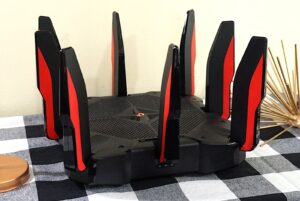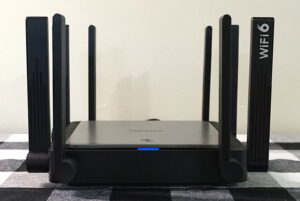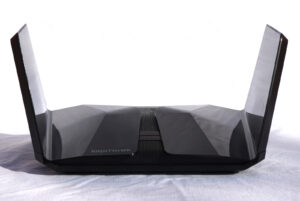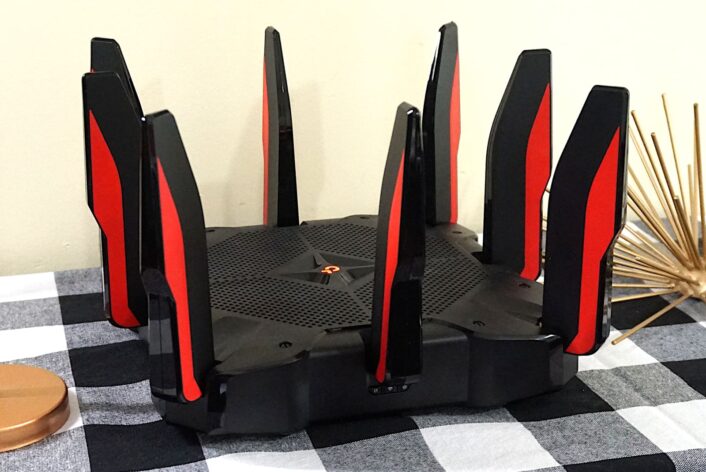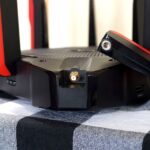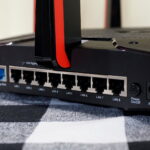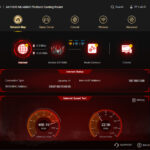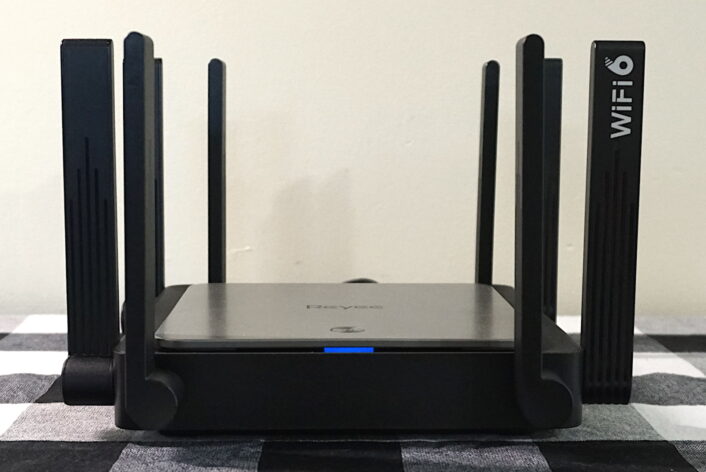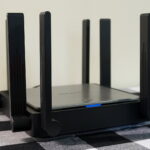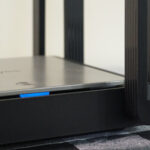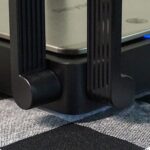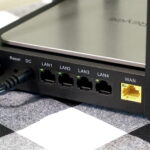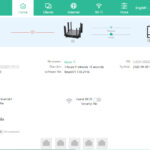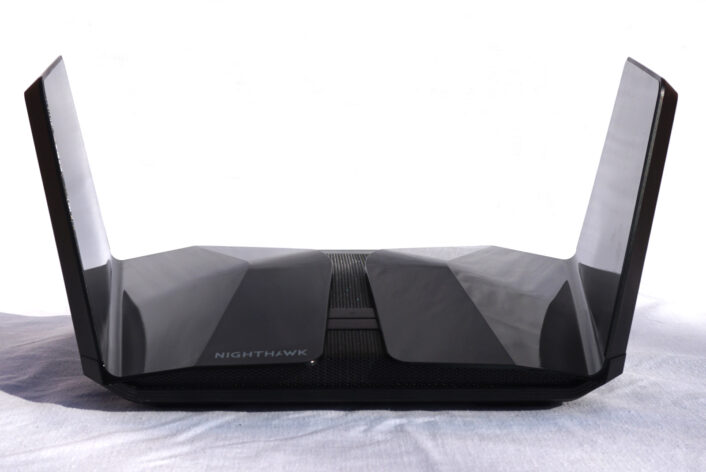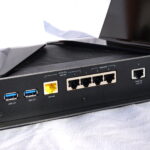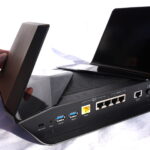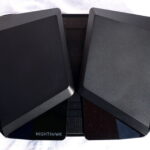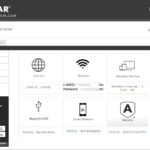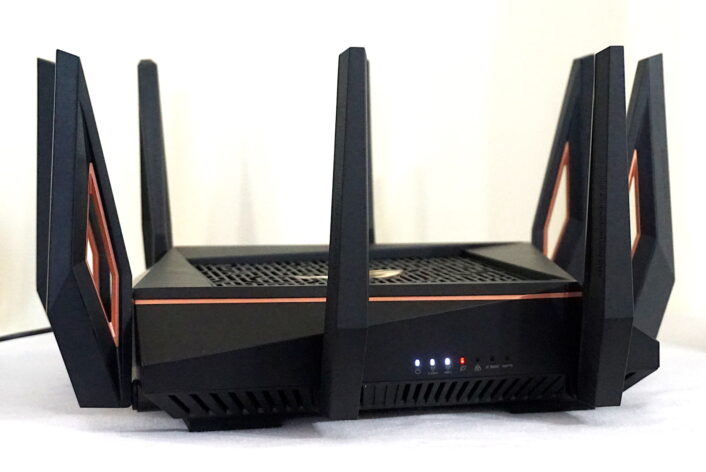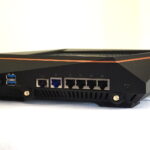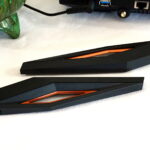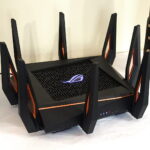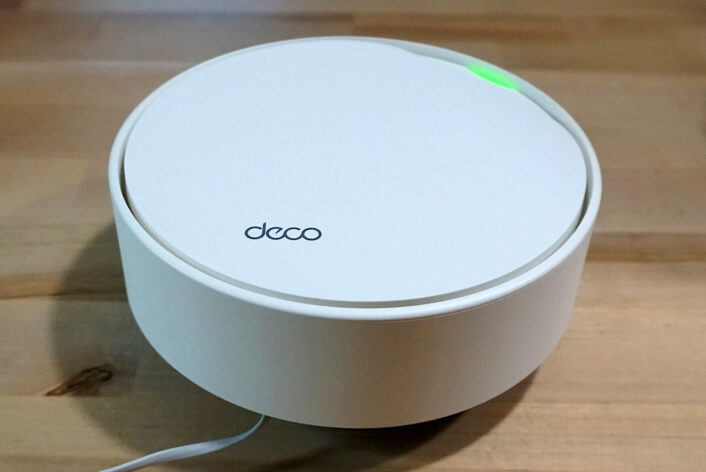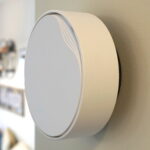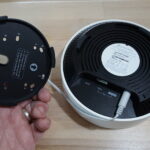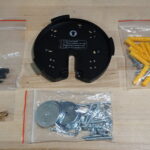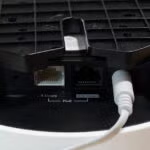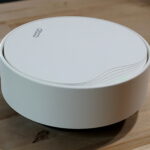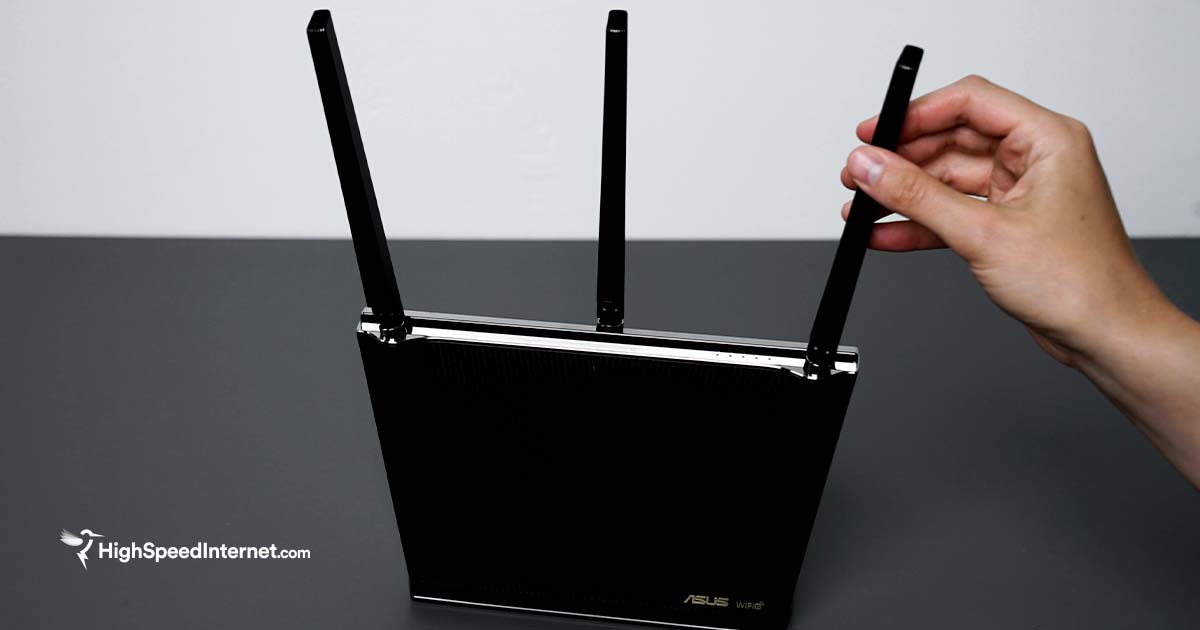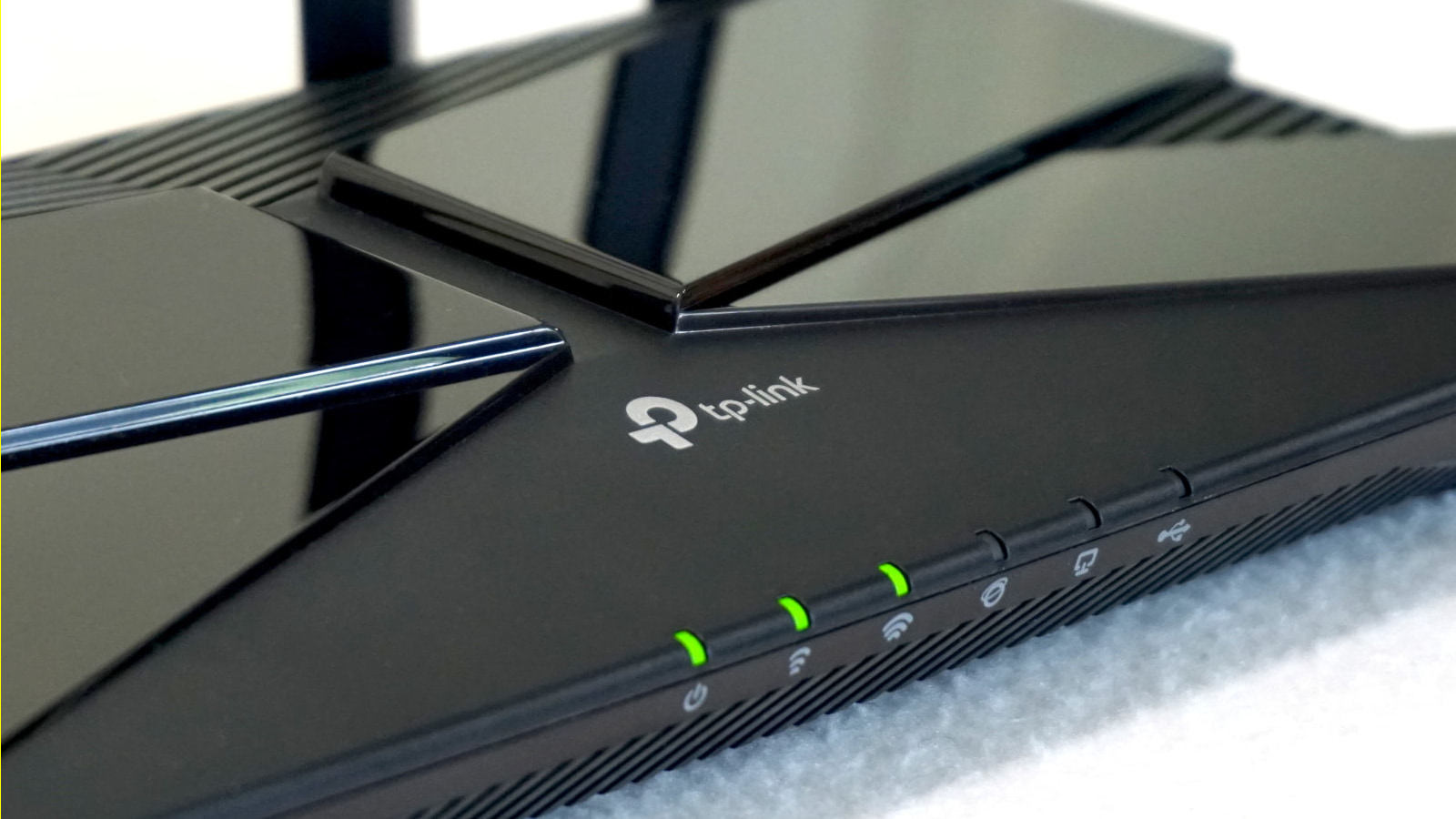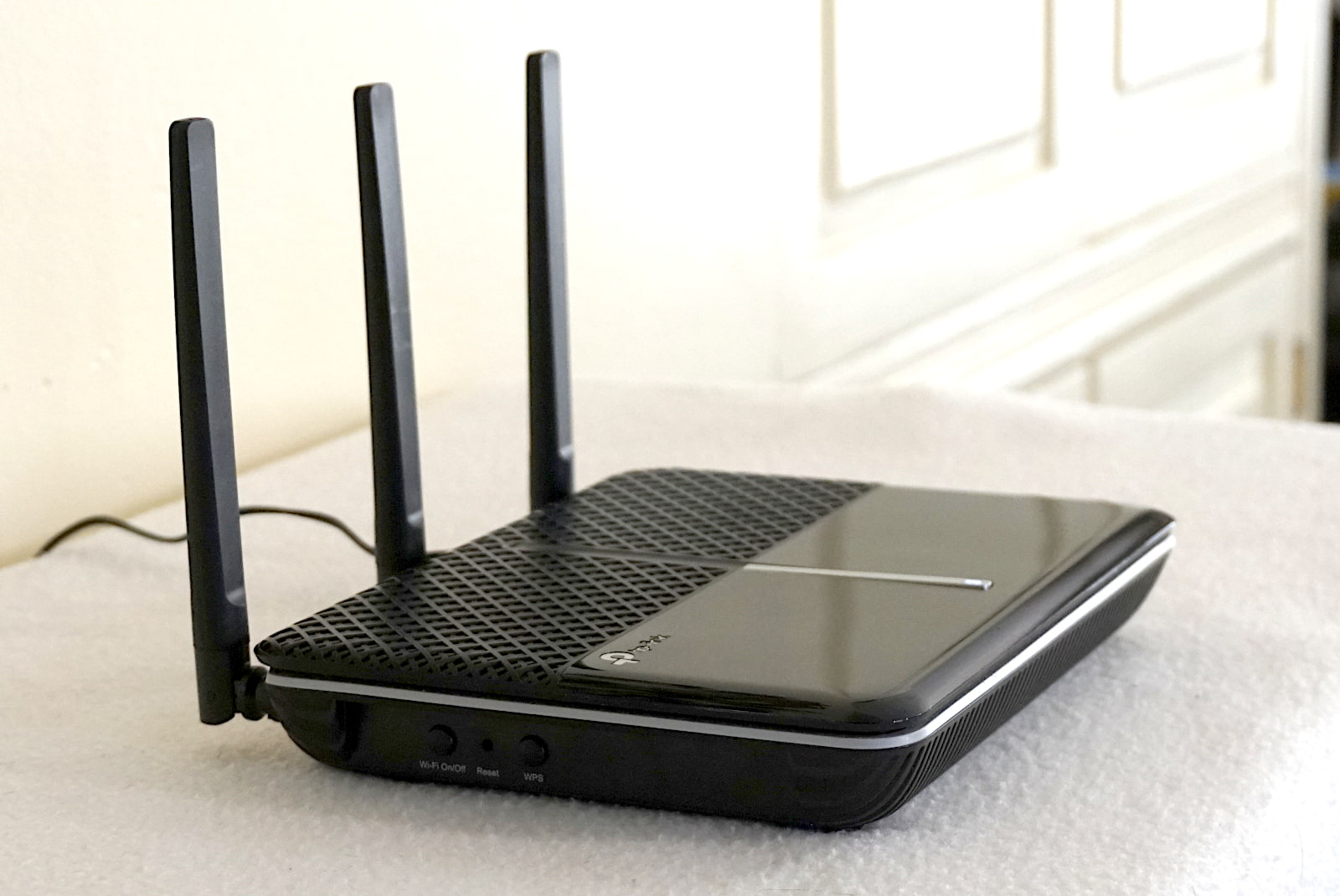The Fastest Internet Routers
We tested dozens of routers to see which ones provide the fastest Wi-Fi speeds on the planet
Dec 2, 2025 | Share
Best Routers
-
Best overallTP-Link Archer AX11000
- $342.00*
- Free parental controls
- Lots of wired ports
- No real gaming tools
-
Best for budgetsReyee RG-E5
- $89.99*
- Free security
- Good long range speeds
- No multi-gig support
-
Best for speedNETGEAR Nighthawk RAXE500
- $441.94*
- Fastest Wi-Fi speeds
- 6 GHz band connectivity
- Subscription-locked features
*Amazon.com prices (as of 8/19/24 11:15 MST). Read full disclaimer.
Our pick: Which router is the best for speed?
TP-Link’s Archer AX11000 is our pick as the best router for speed. We ran dozens of routers through our battery of tests, and the AX11000 performed exceptionally well, hitting high speeds even outside the confines of the building. It’s not the fastest router we have in stock, but it easily handles multiple devices and fast connections with ease. Plus, features like free antivirus and multi-gig internet connectivity make it our favorite router for speed.
How we test routers
We vigorously test routers to see how well they stack up against the competition in speed and range. We also evaluate the setup process and dig into the web and mobile apps to see if they’re easy or difficult to use. Check out our methodology page for more information.
In this roundup:
Best routers for speed | What to look for | Best overall | Our verdict | Benchmarks | FAQ
In this roundup:
The 5 fastest routers we’ve tested
- Best overall: TP-Link Archer AX11000
- Best for budgets: Reyee RG-E5
- Best for speed: NETGEAR Nighthawk RAXE500
- Best for gamers: ASUS ROG Rapture GT-AX11000
- Best for mesh: TP-Link Deco X50-PoE
Compare router speeds and prices
| Best for | Model | Max throughput | Price* |
|---|---|---|---|
| Overall | TP-Link Archer AX11000 | 11,000Mbps | $342.00 on Amazon |
| Budgets | Reyee RG-E5 | 3,200Mbps | $89.99 on Amazon |
| Speed | NETGEAR Nighthawk RAXE500 | 11,000Mbps | $441.94 on Amazon |
| Gamers | ASUS ROG Rapture GT-AX11000 | 11,000Mbps | $279.95 on Amazon |
| Mesh | TP-Link Deco X50-PoE | 3,000Mbps | $269.99 on Amazon |
* Amazon.com prices (as of 8/19/24 11:15 MST). Read full disclaimer.
What should you look for in a superfast router?
Right off the bat, you need to ensure the router supports multi-gig internet if you want the fastest Wi-Fi speeds you can get. There’s no point in getting a router with incredible wireless speeds if it only supports Gigabit internet at the most. We list routers with a multi-gig WAN port, but some link aggregation configurations work too.
You also need a router with Wi-Fi 6, at the least. Actually, we suggest Wi-Fi 6E and the new 6 GHz connection for real-world Gig+ wireless speeds, as you’re not bombarded with the radar woes plaguing the 5 GHz channels.
Do you have the best plan to go with your superfast router?
If not, be sure to enter your zip code below to see what options are available to you.
Best overall—TP-Link Archer AX11000
|
Kevin Parrish | HighSpeedInternet.com |
|
A great router with great speeds at a great price |
|
Score:4out of 5 |
The Archer AX11000 is one of our favorite routers, hands down. It has great speeds, lots of ports for wired connectivity, and free Trend Micro security to boot. You simply can’t go wrong. |
| Pros | Cons |
|
|
Price: $342.00*
*Amazon.com price (as of 8/19/24 11:15 MST). Read full disclaimer.
Expand for product details and ratings
| Category | Score* | Summary |
| Performance | 4 | Has some of the best Wi-Fi 6 speeds around based on our testing. |
| Features | 4 | Includes free Trend Micro antivirus, decent parental controls, and media sharing. |
| Design | 4 | Packs 8 LAN ports, USB connectivity, and 3 Wi-Fi bands. |
| Setup | 4 | Offers a smooth and quick process via the app or web browser. |
| Ease of use | 4 | Presents the best web interface we’ve seen on a TP-Link router. |
* out of 5 points
What we like about it: The Archer AX11000 has the second-fastest close-range speeds we’ve tested to date. And for the price, it’s a steal with free Trend Micro security, a built-in VPN server, and more.
What we wish it did better: While the whole setup process is doable, TP-Link should split the setup process into Basic and Advanced modes so novice users can jump into network management faster.
Why do we recommend it? The Archer AX11000 is one of our favorite routers. You can’t beat what you get for this price. It has great speeds, long range, free Trend Micro antivirus, and multi-gig internet support. If you want a superfast router at an affordable price, this is the one for you.
Alternative: The Archer AX6000 is a cheaper two-band version if you want to save a little money.
Tested speeds at a glance
| 5 GHz max speed | 2 feet | 40 feet | 120 feet |
| 1,200 | 860 | 692 | 282 |
* Speeds in megabits per second (Mbps) using a Wi-Fi 6 client and an 80 MHz channel. See our Benchmarks section for more speed results from our testing.
| Wi-Fi specs | Wired specs |
|
|
Best for budgets—Reyee RG-E5
|
Kevin Parrish | HighSpeedInternet.com |
|
A budget-oriented router with amazing range |
|
Score:3.8out of 5 |
The Reyee RG-E5 is the only router on our list that doesn’t support multi-gig connections. But its speeds at long range are fantastic. |
| Pros | Cons |
|
|
Price: $89.99*
*Amazon.com price (as of 8/19/24 11:15 MST). Read full disclaimer.
Expand for product details and ratings
| Category | Score* | Summary |
| Performance | 4 | Pushes incredible speeds at a long range for a budget-priced router. |
| Features | 3 | Includes free security and cloud-based network management. |
| Design | 3 | Lacks multi-gig internet support and USB connectivity. |
| Setup | 4 | Offers a quick and painless setup experience. |
| Ease of use | 4 | Presents a great experience across the web interface and app. |
* out of 5 points
What we like about it: The Reyee RG-E5 doesn’t support multi-gig internet, it’s true, but it currently has the highest tested speed average at 120 feet. There are a few other callouts, too, like free security and basic parental controls.
What we wish it did better: We don’t expect much at this price, but you can get VPN tools and media sharing on other similarly-priced routers.
Why do we recommend it? The Reyee RG-E5 is a great budget-oriented router, even though it seems geared toward business owners. It has an incredible range, cloud-based network management, and mesh support.
Tested speeds at a glance
| 5 GHz max speed | 2 feet | 40 feet | 120 feet |
| 1,200 | 843 | 636 | 330 |
* Speeds in megabits per second (Mbps) using a Wi-Fi 6 client and an 80 MHz channel. See our Benchmarks section for more speed results from our testing.
| Wi-Fi specs | Wired specs |
|
|
Best for speed—NETGEAR Nighthawk RAXE500
|
Kevin Parrish | HighSpeedInternet.com |
|
A high-price Wi-Fi rocket with incredible range |
|
Score:4.2out of 5 |
The RAXE500 looks like a gaming router, but it’s not. It’s an expensive speedster blazing with the highest speeds we’ve recorded to date. |
| Pros | Cons |
|
|
Price: $441.94*
*Amazon.com price (as of 8/19/24 11:15 MST). Read full disclaimer.
Expand for product details and ratings
| Category | Score* | Summary |
| Performance | 5 | Pushes the fastest speeds we’ve seen on a standalone router to date. |
| Features | 3 | Locks most parental controls and security features behind subscriptions. |
| Design | 4 | Employs the 6 GHz Wi-Fi band for more attainable Gig+ wireless speeds. |
| Setup | 4 | Gets you up and running in no time flat. |
| Ease of use | 3 | Presents a better app experience than the web interface. |
* out of 5 points
What we like about it: The RAXE500 is no joke. It’s the only router we’ve tested to date that still registers throughput at 160 feet. The new 6 GHz wireless connection promises even more reliable Wi-Fi speeds.
What we wish it did better: The RAXE500 and RAX200 require subscriptions to get the most out of them, including security and parental controls.
Why do we recommend it? If long range is what you need, then you can’t beat the RAXE500 and RAX200 routers. They’re speed demons at close range, too, plus the RAXE500 model gives you access to the 6 GHz band for more attainable real-world Gig+ wireless speeds.
Alternative: The Nighthawk RAX200 is a cheaper version if you want to save a little money. It swaps out the third 6 GHz band for a 5 GHz one.
Tested speeds at a glance
| 5 GHz max speed | 2 feet | 40 feet | 120 feet |
| 1,200 | 878 | 693 | 285 |
* Speeds in megabits per second (Mbps) using a Wi-Fi 6 client and an 80 MHz channel. See our Benchmarks section for more speed results from our testing.
| Wi-Fi specs | Wired specs |
|
|
Best for gamers—ASUS ROG Rapture GT-AX11000
|
Kevin Parrish | HighSpeedInternet.com |
|
A fast, feature-packed router for everyone |
|
Score:4.1out of 5 |
The GT-AX11000 isn’t our top pick due to its price, but oh boy is it loaded. There’s plenty to love, from free security to Multi-Gig internet support. |
| Pros | Cons |
|
|
Price: $279.95*
*Amazon.com price (as of 8/19/24 11:15 MST). Read full disclaimer.
Expand for product details and ratings
| Category | Score* | Summary |
| Performance | 4 | Broadcasts great speeds based on our tests, even at 120 feet. |
| Features | 5 | Includes parental controls, free security, and loads more. |
| Design | 4 | Packs 3 bands, 8 streams, and a pair of USB ports. |
| Setup | 4 | Requires a few added steps you don’t normally take on other routers. |
| Ease of use | 4 | Presents one of the best web interfaces we’ve seen to date. |
* out of 5 points
What we like about it: The GT-AX11000 is a gaming router at heart, and there are plenty of cool gaming features to be had here. It also has free parental controls, free security, media sharing, and VPN tools.
What we wish it did better: We had issues with the antennas, as some refused to stand upright no matter how hard we tightened them.
Why do we recommend it? You don’t need to be a gamer to love the GT-AX11000. It has great speeds even at long range and tons of great features you may or may not even use. It works with other ASUS gaming gear too.
Tested speeds at a glance
| 5 GHz max speed | 2 feet | 40 feet | 120 feet |
| 1,200 | 848 | 642 | 260 |
* Speeds in megabits per second (Mbps) using a Wi-Fi 6 client and an 80 MHz channel. See our Benchmarks section for more speed results from our testing.
| Wi-Fi specs | Wired specs |
|
|
Best for mesh—TP-Link Deco X50-PoE
|
Kevin Parrish | HighSpeedInternet.com |
|
One of the best mesh systems we’ve tested |
|
Score:3.8out of 5 |
For now, the Deco X50-PoE is a pricey mesh networking system since it’s only sold in a 3-pack. But it’s great to have, especially if you need Wi-Fi in areas without power outlets. |
| Pros | Cons |
|
|
Price: $269.99*
*Amazon.com price (as of 8/19/24 11:15 MST). Read full disclaimer.
Expand for product details and ratings
| Category | Score* | Summary |
| Performance | 4 | Has good speeds for a mesh system based on our testing. |
| Features | 3 | Includes some free basic parental controls but requires a subscription for more. |
| Design | 4 | Supports Power over Ethernet networking and multi-gig internet. |
| Setup | 4 | Leads novice users through a step-by-step installation. |
| Ease of use | 4 | Offers an improved user experience thanks to a major Deco app update. |
* out of 5 points
What we like about it: The Deco X50-PoE has decent speeds, even at a long range. You’ll find some nice callouts here, too, like free basic parental controls and PoE networking.
What we wish it did better: You can set the 5 GHz channel width, but you can’t change the channel. This limitation may be problematic if other networks bombard you.
Why do we recommend it? The Deco X50-PoE is the ideal mesh networking system for business, but it’s also great for homes that need Wi-Fi in areas without a power outlet. The free basic parental controls are also nice, but that’s it in features without a subscription.
Tested speeds at a glance
| 5 GHz max speed | 2 feet | 40 feet | 120 feet |
| 1,200 | 821 | 366 | 83 |
* Speeds in megabits per second (Mbps) using a Wi-Fi 6 client and an 80 MHz channel. See our Benchmarks section for more speed results from our testing.
| Wi-Fi specs | Wired specs |
|
|
Our verdict
The TP-Link Archer AX11000 is our top pick router for speed. It doesn’t have the absolute fastest wireless speeds under the sun, but it’s ideal if you have a multi-gig internet connection. Plus, the eight LAN ports are ideal if you mainly want to avoid Wi-Fi altogether—you can even link two of them together for a 2Gbps wired connection. The free antivirus and premium parental tools round out a great package for the money.
Our router benchmarks
Here are the average 5 GHz speeds recorded for each router. Wi-Fi speeds fluctuate significantly, so these numbers reflect at least three tests taken at each 10-foot interval.
TP-Link Archer AX11000
| iPhone 12 Pro Max | Google Pixel 3 | |
|---|---|---|
| 2 feet | 860 | 658 |
| 10 feet | 848 | 645 |
| 20 feet | 768 | 572 |
| 30 feet | 745 | 453 |
| 40 feet (porch) | 692 | 330 |
| 120 feet (across street) | 282 | 175 |
* Speeds in megabits per second (Mbps) using an 80 MHz channel.
Reyee RG-E5
| iPhone 12 Pro Max | Google Pixel 3 | |
|---|---|---|
| 2 feet | 843 | 695 |
| 10 feet | 842 | 692 |
| 20 feet | 789 | 656 |
| 30 feet | 725 | 646 |
| 40 feet (porch) | 636 | 445 |
| 120 feet (across street) | 330 | 143 |
* Speeds in megabits per second (Mbps) using an 80 MHz channel.
NETGEAR Nighthawk RAXE500
| iPhone 12 Pro Max | Google Pixel 3 | |
|---|---|---|
| 2 feet | 878 | 701 |
| 10 feet | 841 | 698 |
| 20 feet | 792 | 576 |
| 30 feet | 755 | 530 |
| 40 feet (porch) | 693 | 421 |
| 120 feet (across street) | 285 | 184 |
* Speeds in megabits per second (Mbps) using an 80 MHz channel.
ASUS ROG Rapture GT-AX11000
| iPhone 12 Pro Max | Google Pixel 3 | |
|---|---|---|
| 2 feet | 848 | 652 |
| 10 feet | 827 | 644 |
| 20 feet | 755 | 529 |
| 30 feet | 729 | 462 |
| 40 feet (porch) | 642 | 308 |
| 120 feet (across street) | 260 | 169 |
* Speeds in megabits per second (Mbps) using an 80 MHz channel.
TP-Link Deco X50-PoE
| iPhone 12 Pro Max | Google Pixel 3 | |
|---|---|---|
| 2 feet | 821 | 618 |
| 10 feet | 719 | 561 |
| 20 feet | 657 | 497 |
| 30 feet | 593 | 405 |
| 40 feet (porch) | 366 | 258 |
| 120 feet (across street) | 83 | 6 |
* Speeds in megabits per second (Mbps) using an 80 MHz channel.
FAQ about superfast routers
Is Gigabit Ethernet not considered fast?
Why are real-world Wi-Fi speeds slower?
What is max throughput?
How far can a router reach?
Disclaimer
Amazon.com Prices as of 8/19/24 11:15 MST. Product prices and availability are accurate as of the date/time indicated and are subject to change. Any price and availability information displayed on Amazon.com at the time of purchase will apply to the purchase of this product. Highspeedinternet.com utilizes paid Amazon links.
CERTAIN CONTENT THAT APPEARS ON THIS SITE COMES FROM AMAZON. THIS CONTENT IS PROVIDED ‘AS IS’ AND IS SUBJECT TO CHANGE OR REMOVAL AT ANY TIME.
Author - Kevin Parrish
Kevin Parrish has more than a decade of experience working as a writer, editor, and product tester. He began writing about computer hardware and soon branched out to other devices and services such as networking equipment, phones and tablets, game consoles, and other internet-connected devices. His work has appeared in Tom’s Hardware, Tom's Guide, Maximum PC, Digital Trends, Android Authority, How-To Geek, Lifewire, and others. At HighSpeedInternet.com, he focuses on network equipment testing and review.
Editor - Rebecca Lee Armstrong
Rebecca Lee Armstrong has more than six years of experience writing about tech and the internet, with a specialty in hands-on testing. She started writing tech product and service reviews while finishing her BFA in creative writing at the University of Evansville and has found her niche writing about home networking, routers, and internet access at HighSpeedInternet.com. Her work has also been featured on Top Ten Reviews, MacSources, Windows Central, Android Central, Best Company, TechnoFAQ, and iMore.
